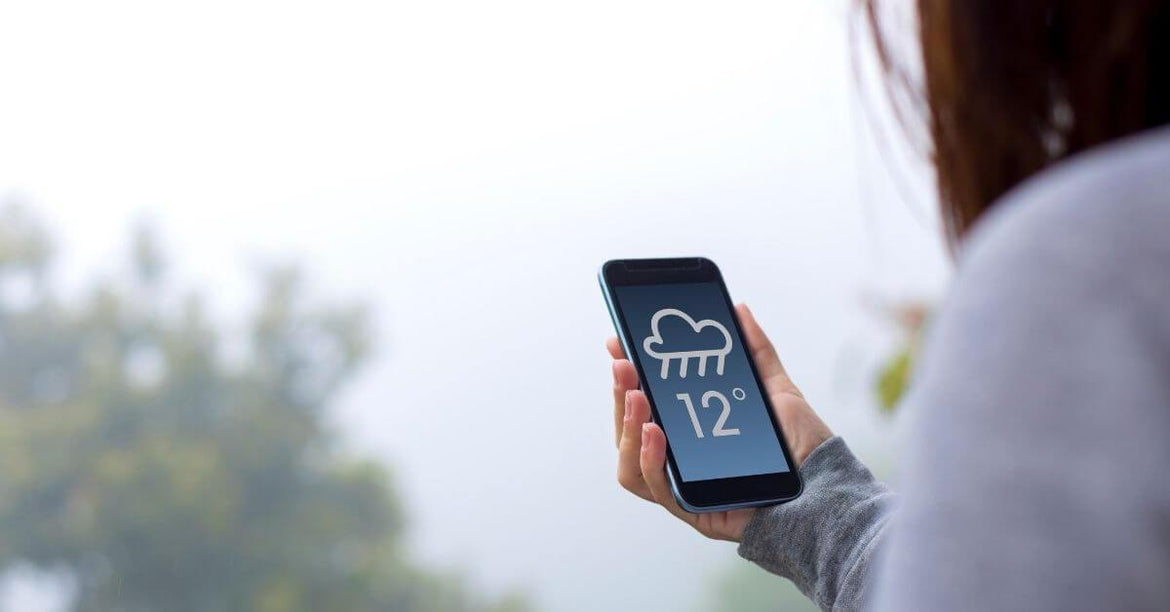
Does Weather Affect Cell Service?
- News
- 16 Oct, 2020
Spring has sprung in South Africa, and most of the country is heading into its yearly rainy season. Question is, does weather phenomena such as rain, hail, or lightning storms affect your cellular signal?
Cell phone signal is carried by radio waves(the am/fm kind) and cellular reception can be affected by many atmospheric conditions, that also affect terrestrial or broadcasting radio signal.

In actual fact, the weather can have a direct or indirect impact on 4G cellular signal, but won’t really affect cell signals under 2GHz. Cell signals under 2Ghz are more robust and can travel further lengths, but don't offer the fast speeds of frequencies above 2Ghz such as 4G or 5G. Cellular waves above the 2Ghz frequency are more penetrable and subject to obstruction.
An example of a direct effect would be when a storm with lightning causes electrical interference with cell signals.
An indirect effect of weather on cell reception could be caused by a change of season, say from winter to spring.
With the arrival of spring, trees bud out and produce leaves. This increase in foliage can disseminate, weaken and even block cell signals traveling to and from the cell tower. Of course, this can adversely affect cell service for those inside the building, although not directly attributable to the weather conditions of the present day.
How Weather Affects Cell Phone Signal
Firstly, any water in the atmosphere that comes between your cell phone and the cell tower is not a good thing. Water obstructs radio waves on the frequency bands used by cellular networks. That means rain, fog, clouds –or even a bright, sunny day with high humidity – can cause cell reception to decline.
This signal impedance happens because water conducts electricity, which allows water vapour in the atmosphere to reflect or refract radio waves. Engineers call this the “propagation delay effect.”
But for you and me it means the cell signal is (a) weakened by noise and (b) takes longer to get where it’s supposed to go (either to your phone or the tower) which we notice as lagging voice calls, buffering data or dropped calls.
Various Weather Conditions Can Impact Your Cellular Signal:
- Rain – Are data speeds and cell signal affected by rain? Rainstorms generally tend to have the biggest impact on cell reception because of the density of water vapour associated with them. The heavier the rain, the higher the probability that it will have a negative effect on your reception.
- Atmospheric water vapour (like rain) can also hinder your cell reception by absorbing energy from radio waves. The absorbed energy is converted into heat – the same thing your microwave does when you make a bag of popcorn or heat up food.
- Lightning – Thunderstorms, aside from rain, are problematic, since lightning causes electrical interference. Of course, a lightning strike can damage cell towers or other network equipment, affecting local cell service.
- Snow and hail – These would likely have a lesser effect on your cell reception than rain because ice, in the form of snowflakes or hailstones, is less dense than water in liquid form. However, particularly heavy snow can really refract radio waves.
- Fog & clouds – Again, these would probably affect cell reception less than rain, but they can still scatter radio waves in localized areas.
- Temperature – Hot or cold, exclusive of other weather conditions, should have no effect on your cell reception. Now, it may seem like outside temperatures affect your signal, but this is almost always due to humidity changes that accompany warming or cooling temperatures.
- Wind – Wind alone, like temperature, should not affect your cell reception. But any of the above-described weather conditions associated with high winds certainly can cause service issues. High winds can also damage cell network equipment and power lines, which could affect local cellular service.

What To Do About Poor Cell Signal?
Now that you understand how and why weather can affect cellular reception, you will have a better understanding of why you are experiencing cell reception issues during an adverse weather condition in your location and the role weather plays in cellular reception. There are various other factors that influence your cell phone signal as well.
A cell phone signal booster can help bridge the effects of poor weather on your cell phone signal. Cell signal boosters take existing cell signal, and amplifies it to give you improved call quality, faster data and reliable signal in your home or vehicle.
Our signal boosters from Wilson Electronics (weBoost and WilsonPro) work with all cellular networks, all devices and across all 3 frequency bands (2G, 3G, 4G). All our boosters are ICASA approved, and come with a 1 year warranty, and 30-day money-back guarantee. Call our friendly technical support today on 011 749 3085 or email us with any questions or queries.

